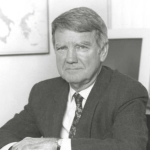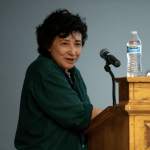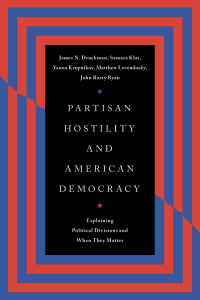INDEPENDENT, SCIENTIFIC RESEARCH
ON POLITICS AND SOCIETY
Get to know CPS
From the CPS Blog
What have we learned from the American National Election Studies (ANES)?
The ANES has surveyed Americans before and after every U.S. presidential election since 1948, providing us with rich insights into why and how Americans vote. In recognition of the ANES’s 75th anniversary, CPS reached out to scholars to ask what we know about American politics, voters and voting behaviors because of the ANES. Read what they told us on the CPS blog.
Is Partisan Hostility Damaging American Democracy?
A new book by some of the foremost scholars of polarization amasses empirical evidence of the consequences of political hostility in recent years, and offers a theory of when it affects political beliefs and behaviors. More from the CPS blog.
Events
This year’s CPS Wednesday seminar series has an exciting lineup of speakers.
Miller-Converse Lecture 2025
The 2025 Miller-Converse Lecture will be held on March 20, 2025 at 4 p.m. The speaker will be Tali Mendelberg.
ISR Thompson 1430
The Miller-Converse Lecture
CPS News
Remembering Samuel H. Barnes
 Posted June 14, 2024.
Posted June 14, 2024.
Foreign Affairs Report: America Is Losing the Arab World
 Posted June 11, 2024.
Posted June 11, 2024.
CPS launches SUNGEO project to assist in merging data across different scales
 Posted May 14, 2024.
Posted May 14, 2024.
The new Subnational Geospatial Data Archive (SUNGEO) project addresses a common challenge for social researchers: misalignment that arises when data are collected at varying levels of scale. It uses a variety of tools to integrate geospatial data, allowing researchers and analysts to evaluate data relationships from a variety of sources, scales, and geographical contexts. More from ISR.
Michael Traugott Wins Roper’s 2024 Mitofsky Award for Excellence in Public Opinion Research
 Posted May 10, 2024.
Posted May 10, 2024.
Michael Traugott, Professor Emeritus at the University of Michigan and a Research Professor Emeritus in the Center for Political Studies, has been recognized with the 2024 Warren J. Mitofsky Award for Excellence in Public Opinion Research. More from CPS.
More feelings of misinformation, more news avoidance, Ariel Hasell study shows
 Posted April 17, 2024.
Posted April 17, 2024.
As people have more difficulty distinguishing fact from fiction in the United States, they are more likely to feel news fatigue and avoid news altogether, according to a new study by Ariel Hasell of the Center for Political Studies. More from Michigan News.
SUNGEO launches to integrate data at a variety of geographic scales
 Posted April 17, 2024.
Posted April 17, 2024.
Today marks the launch of the Subnational Geospatial Data Archive (SUNGEO) project, a set of tools that will improve research involving sub-national data in order to bolster knowledge of how societies develop, prosper, and change. Funded by a grant from the National Science Foundation, SUNGEO offers data on demography, politics, climate, violence, public health, weather, and terrain at a variety of geographic scales. It offers innovative tools to integrate spatially-misaligned data. The tools have been designed for researchers and analysts wishing to assess values of and relationships among variables across data sources, scales, integration methods, and geographic/historical contexts. More from CPS.
ANES wins AAPOR's Policy Impact Award
 Posted April 12, 2024.
Posted April 12, 2024.
The American National Election Studies (ANES) was recognized today by the American Association for Public Opinion Research (AAPOR) with its Policy Impact Award– given annually to outstanding projects making a clear impact, improving policy decisions, practice and discourse. More from CPS.
CPS hosts ‘The 2024 Mexican Elections in Context’
 Posted April 12, 2024.
Posted April 12, 2024.
On June 2, 2024, Mexican citizens will vote in the largest election in the country’s history? What is at stake? More from the Michigan Daily.
Celebrating 75 years of the American National Election Studies
The American National Election Studies celebrates its 75th anniversary in 2024 with events at MPSA, APSA, and more. The Center for Political Studies blog offers chronicles, comments, and reflections on the project. More from CPS.

Featured Project
Climate Change, Demographic Shifts, and Socio-Political Stability in Sub-Saharan Africa
Leveraging the skills of an exceptional interdisciplinary team of University of Michigan’s social, data, and climate scientists, this project will advance the frontiers of usable social-scientific knowledge at the intersection of climate, demography, and socio-political stability as it affects U.S. national security interests. The project will analyze how complex interactions of climate and demographic change affect sociopolitical stability in Africa, assess where and when risks are greatest, and thus respond to two central concerns of the 2022 U.S. National Defense Strategy: climate change and China (PRC). The project will generate actionable research findings on factors that prompt and locations that harbor great risks of political instability and conflict in Africa.
Learn more about the project, funded by the Minerva Research Initiative.
The PIs are Arun Agrawal and Yuri Zhukov.

Featured Publication
Partisan Hostility and American Democracy
For generations, experts argued that American politics needed cohesive parties to function effectively. Now many fear that strong partisan views, particularly hostility to the opposing party, are damaging democracy. Is partisanship as dangerous as we fear it is? To provide an answer, this book offers a nuanced evaluation of when and how partisan animosity matters in today’s highly charged, dynamic political environment, drawing on panel data from some of the most tumultuous years in recent American history, 2019 through 2021. The authors– James N. Druckman, Samara Klar, Yanna Krupnikov, Matthew Levendusky, and John Barry Ryan– show that partisanship powerfully shapes political behaviors, but its effects are conditional, not constant. Instead, it is most powerful when politicians send clear signals and when an issue is unlikely to bring direct personal consequences. In the absence of these conditions, other factors often dominate decision-making. They argue that while partisan hostility has degraded US politics—for example, politicizing previously non-political issues and undermining compromise—it is not in itself an existential threat. As their research shows, the future of American democracy depends on how politicians, more than ordinary voters, behave.
Read more about the book. (University of Chicago Press: June 2024)

 Posted June 11, 2024.
Posted June 11, 2024. 